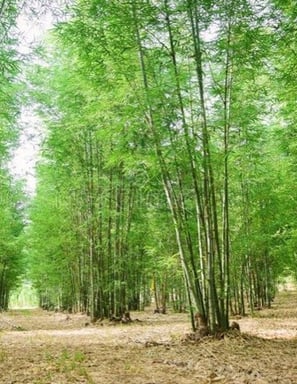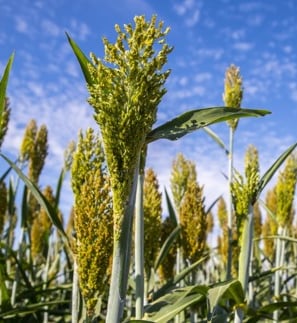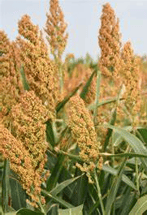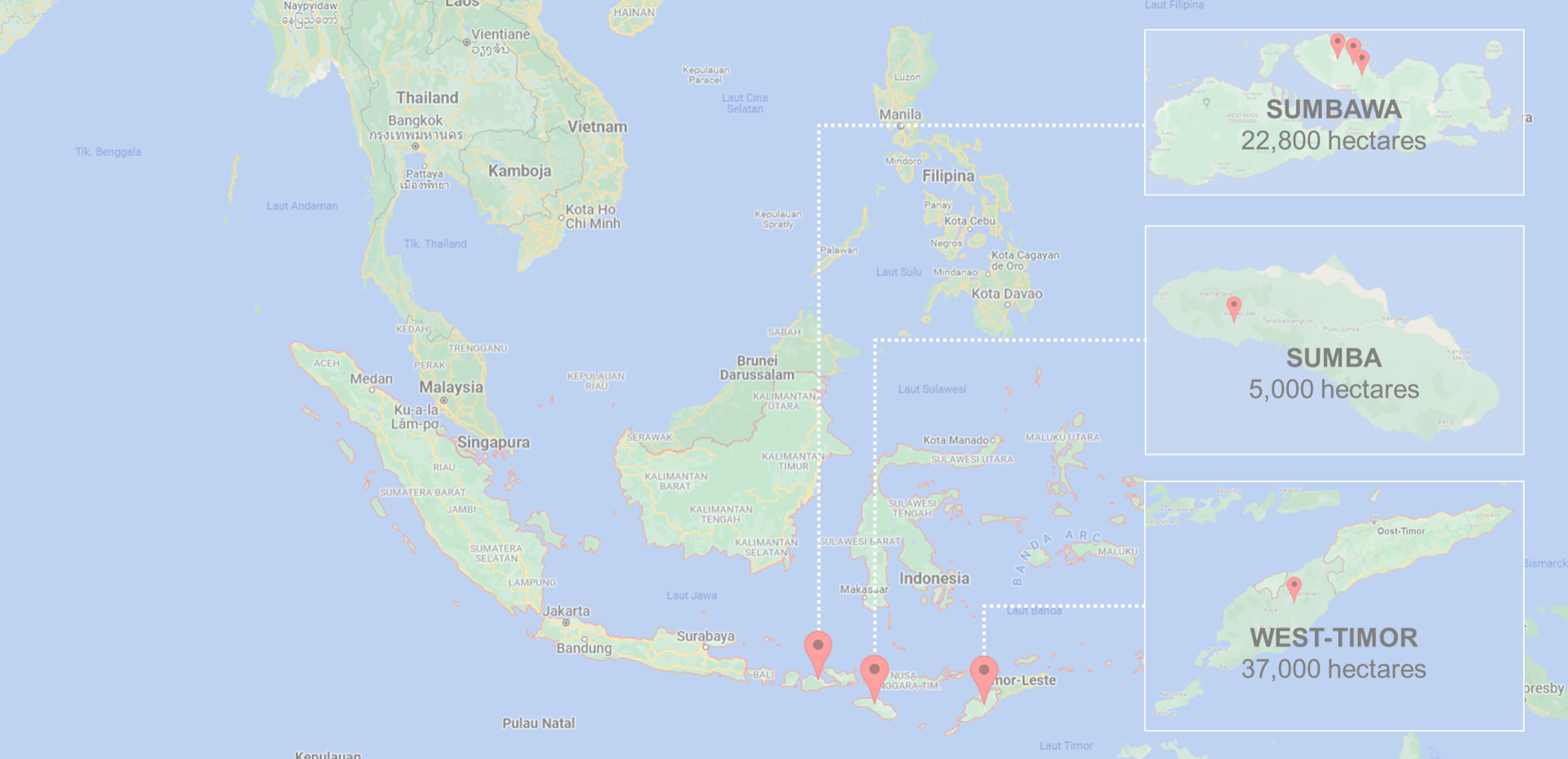A Changemaker's Story Becoming a Climate and Environmental Entrepreneur
More than five years ago somewhere in 2018, the founder embarked on a quest for sustainable solutions to build greenhouses using bamboo instead of steel. His journey began by exploring bamboo greenhouse designs from a Japanese university on the internet. Intrigued by the potential of bamboo, he started seeking out bamboo designers and builders. While the development of bamboo greenhouses was eventually canceled, his fascination with bamboo grew as he met experts who had long championed bamboo's potential for change in Indonesia.
One key turning point in this journey was an encounter with an expert who had been advocating for bamboo as a transformative resource in Indonesia. This encounter ignited a deep passion for bamboo in the founder, who saw it as a naturally gifted plant with the potential to mitigate climate change and provide sustainable alternatives to traditional commodities.
Bamboo's emergence from the shadow of traditional timber signifies a paradigm shift toward sustainable resource management. This fast-growing, self-perpetuating giant boasts remarkable environmental credentials. Unlike tree-based forestry, bamboo thrives without replanting or harmful chemicals, acting as a soil savior by revitalizing ravaged lands and enriching crops with its self-fertilizing properties. Moreover, its versatility extends beyond mere timber replacement. Bamboo seamlessly integrates into existing production lines, offering eco-friendly solutions for pulp, paper, and a plethora of other industries such as food, feed, textiles, and even bioethanol. Rural communities stand to benefit immensely from this verdant revolution. Bamboo empowers local economies without demanding infrastructural upheavals, creating sustainable livelihoods for millions.
Further research on bamboo revealed its versatility in various industries, including food, feed, paper, textiles, and bioethanol. China stood out as a global leader in bamboo production, with an extensive range of bamboo-based products. China's bamboo industry recorded a revenue of over US$60 billion in 2021, with a projected Compound Annual Growth Rate (CAGR) of 4.5% from 2022 to 2030 (source: Statista). Remarkably, more than 15 million people worked in this industry. India, with over 11 million hectares of bamboo, marked the second-largest bamboo industry, boasting a market size of US$7.5 billion and a CAGR of 6.2%.
Indonesia ranked third in bamboo production, with more than 2 million hectares of bamboo plantations and a market size of US$3 billion, exhibiting a CAGR of 6%. China's dominance in bamboo production can be attributed to its primarily monopodial bamboo forests, which are easier to harvest. In contrast, India's bamboo production is predominantly comprised of various sympodial species scattered across the country, while Indonesia faces similar challenges with sympodial species dispersed across thousands of islands.
While residing in Indonesia, the founder recognized an opportunity to develop commercial bamboo plantations on unused or depleted lands. These lands abandoned due to mining and oil exploration, as well as vast savannah territories, appeared to be ideal for bamboo cultivation. However, the task was far more challenging than initially thought. Many large land banks, despite their appeal, were rendered unsuitable due to local government-issued licenses.
In 2018, more than 3 million hectares of unused land titles were revoked, and new titles were centralized under the Ministry of Forest. This rendered many lands obsolete for bamboo cultivation. However, a breakthrough occurred when the founder met a company with an industrial forest (HTI) license, covering over 60,000 hectares in the provinces of Nusa Tenggara Timur (NTT) and Nusa Tenggara Barat (NTB) in Indonesia.
This marked the beginning of the founder's journey to execute a business plan aimed at establishing a green industry built around bamboo.




RISING
IMPORTANCE
Overlooked Green Industry Solution
Sustainable Industrial Crops










A significant turning point occurred when the BamFor founder encountered a company in Indonesia that held two industrial forest (HTI) licenses, encompassing over 60,000 hectares in the provinces of Nusa Tenggara Timur (NTT) and Nusa Tenggara Barat (NTB). These licenses were secured in 2009 and 2013, following an initial investment of US$5 million from an investor group with the intention of participating in carbon credit trading markets under the Kyoto Protocol. However, with the expiration of the Kyoto Protocol, the investors withdrew their further financial support. During the period between 2009 and 2015, more than 1,500 hectares were dedicated to planting Teak, Acacia, Eucalyptus, and Calliandra trees within these concessions.
In 2018, BamFor signed a letter of intent to transform these concessions into a green industry with bamboo and sorghum as the primary industrial crops. The core objectives revolved around producing sustainable pulp for paper and molded packaging, alongside utilizing sorghum grains for the food industry. Recognizing the necessity for ample land and long-term concession rights, a subsidiary company of BamFor in Indonesia was granted exclusive rights to execute this ambitious business plan. This company brought invaluable expertise in bamboo agronomy and agroforestry, stemming from its involvement with the original concession.
In 2023, these companies commenced the implementation of the business plan by initiating the plantation of the first 500 hectares of bamboo in Kupang, located in Nusa Tenggara Timur (NTT). This marked the beginning of a monthly planting program, commencing in September 2023 in NTT and expanding to an additional 100 hectares in Sumbawa (NTB). This continuous effort is set to continue until they achieve a total of 24,000 hectares by 2033, adhering to a comprehensive ten-year plan.
Additionally, alongside bamboo, a total of 900 hectares of sorghum will be cultivated in Sumbawa. The initial 300 hectares are scheduled for planting in the fourth quarter of 2023, with an additional 600 hectares set for cultivation in 2024. Starting in February 2024, we will initiate a monthly rotational planting approach, encompassing 300 hectares, with the goal of achieving daily harvesting of grain production for sorghum.
We Envision Indonesia's true wealth not in its underground resources, but in its Sustainable and Thriving Industrial Crops
Our Vision is to drive transformation by utilizing Indonesia's enormous arid and depleted lands to develop an environmentally friendly green sector centered around industrial crops such as bamboo, sorghum, sugarcane, and corn. This will be accomplished by leveraging Indonesia's immense land resources. Our objective is to develop environmentally friendly replacements for trees that have been cut down in the production of paper by using bamboo, sorghum, sugarcane, and corn in the production of bioplastics, and by assuring food security through the growth of sorghum grain, which thrives in our climate. We hope that by doing so, we will not only strengthen the economies of the surrounding areas, but also play a significant part in reducing the effects of climate change and creating a better and more sustainable future for our country.


